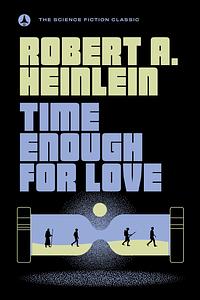Take a photo of a barcode or cover
Holy Hindu cows. What the foop did I just read?
For the quickest of reviews I would easily sum it up as. "I didn't care for this book much at all"
I reserve 1 star reviews to books that truly annoy me. Or if it ever comes to it, books I don't finish.
This was neither. It was just exceptionally boring.
Boring dialogue, the quips and tired sayings really got to me after a while.
Boring progress, there was nothing resembling a plot for 2 thirds of a book, just an old guy rambling.
boring characters, The characters were mostly not fleshed out. The main guy was enough, but I didn't care much for his character. The women all felt like different versions of someone's sexual fantasies. There was little sci-fi tech, very little world building.
The only plot or action (or anything), was left to the last third of the book.
Sci-fi in general has an extreme fascination with sex. I get it to some degree. Society has a fascination with sex as a whole, too. Much of it unhealthy. I think that sci-fi tries to say something about it... I think they fail for the most part.
This book takes it to 11 and fails even harder. The women were nothing but snark and sex toys. most scenes were either about sex, discussing sex, or having sex. Then the incest... that was one oddity too many, especially the poor explaining of how it was fine. It got boring fast.
I enjoyed Heinlein's "Stranger In A Strange Land" well enough, and have another 5 or so books of his books on my "to read" list. This book didn't throw me off the author but I can say strongly that I didn't like this.
I reserve 1 star reviews to books that truly annoy me. Or if it ever comes to it, books I don't finish.
This was neither. It was just exceptionally boring.
Boring dialogue, the quips and tired sayings really got to me after a while.
Boring progress, there was nothing resembling a plot for 2 thirds of a book, just an old guy rambling.
boring characters, The characters were mostly not fleshed out. The main guy was enough, but I didn't care much for his character. The women all felt like different versions of someone's sexual fantasies. There was little sci-fi tech, very little world building.
The only plot or action (or anything), was left to the last third of the book.
Sci-fi in general has an extreme fascination with sex. I get it to some degree. Society has a fascination with sex as a whole, too. Much of it unhealthy. I think that sci-fi tries to say something about it... I think they fail for the most part.
This book takes it to 11 and fails even harder. The women were nothing but snark and sex toys. most scenes were either about sex, discussing sex, or having sex. Then the incest... that was one oddity too many, especially the poor explaining of how it was fine. It got boring fast.
I enjoyed Heinlein's "Stranger In A Strange Land" well enough, and have another 5 or so books of his books on my "to read" list. This book didn't throw me off the author but I can say strongly that I didn't like this.
Another one bites the dust. Like [b:The Bourne Identity|7869|The Bourne Identity (Jason Bourne, #1)|Robert Ludlum|https://i.gr-assets.com/images/S/compressed.photo.goodreads.com/books/1335860740l/7869._SY75_.jpg|859111], this is another of my first favorite novels that just doesn't hold up upon rereading 40 years later. Back then, it seemed cool and fun. Now it just feels tired and twee, probably because I'm old(er) and a lot more cynical. And the patriarchal tone of the thing just drives me mad. Some old guy talking, as written by another old guy, like he understands women completely but they aren't any of the women in my life. And it just goes on and on and on, with no real narrative structure or very many interesting stories. I didn't quite finish it but I'm done. I'll give it 3 stars, although it is more of a 2.5-star book, which is way more than I've ever given a book I've given up on, but only because I did finish it once upon a time.
I'm of two minds in regards to this novel.
Pros: it is full of great sci-fi, including time travel, computers taking on human form, extremely long-life. Heinlein is a great story-teller, and the protagonist is very engaging. Certain episodes, especially the Dora story and the time-travel story at the end, were fantastic. The book is full of great aphorisms and comments on politics, religion, and society. I do think that Heinlein's intent was to examine all the sorts of love, love for self, love for parent, love for spouse, love for child, love for friends, love for animals, even love for our machines. I was intrigued by the idea of a future society that had lost the concept of "love", even the word for it.
Cons: in nearly every case, Heinlein uses sex as the expression of love. His loving family is basically a massive polyamorous compound. There is no self-restraint expected of anyone, sexually--it is assumed that brothers and sisters will want to bang each other if no alternatives are available, and might do so anyway. I find all this ridiculous, and it actually demeaned his characters in my eyes. Only the chief protagonist shows any sexual restraint, and that he usually abandons once his limited criteria (will it cause genetically deformed offspring?) are satisfied. Is Heinlein so convinced that future humanity will have no sexual mores? I find it interesting that the two most compelling sections of the novel are the ones where sexual faithfulness are integral to the story: again, the Dora story and the return to the Past.
Pros: it is full of great sci-fi, including time travel, computers taking on human form, extremely long-life. Heinlein is a great story-teller, and the protagonist is very engaging. Certain episodes, especially the Dora story and the time-travel story at the end, were fantastic. The book is full of great aphorisms and comments on politics, religion, and society. I do think that Heinlein's intent was to examine all the sorts of love, love for self, love for parent, love for spouse, love for child, love for friends, love for animals, even love for our machines. I was intrigued by the idea of a future society that had lost the concept of "love", even the word for it.
Cons: in nearly every case, Heinlein uses sex as the expression of love. His loving family is basically a massive polyamorous compound. There is no self-restraint expected of anyone, sexually--it is assumed that brothers and sisters will want to bang each other if no alternatives are available, and might do so anyway. I find all this ridiculous, and it actually demeaned his characters in my eyes. Only the chief protagonist shows any sexual restraint, and that he usually abandons once his limited criteria (will it cause genetically deformed offspring?) are satisfied. Is Heinlein so convinced that future humanity will have no sexual mores? I find it interesting that the two most compelling sections of the novel are the ones where sexual faithfulness are integral to the story: again, the Dora story and the return to the Past.
It has its moments, I guess, but Jesus Christ, Heinlein, see a fucking therapist.
I would so marry Woodrow Wilson Smith, aka Lazarus Long, if I got the chance. (Or at least invite him mattress-dancing.) Love, adventure, sex, time-travel, talking space-yachts and computers with personalities. Heinlein's I Will Fear No Evil is a close second.
This classic sci-fi chronicle of the lives and loves of Lazarus Long across centuries and parsecs of time and space is wondrous and powerful. Thanks to Laura for lending me her copy. <3
Ok. That was hard.
How do I review it? he should have just cut the crap and called it "Time Enough for Sex."
Certainly, this book is far too ambitious. Of the three side-stories they could have been released as separate short-stories. Except that damn Dora Wild West story, sooooo boring.
Listen. Lazarus Long is over 2,000 years old and every time a woman (and some men) get even a whiff of him they instantly drop their pants and beg him, yes, beg him, to impregnate them. Some in those words.
It works somewhat in the context of the story; Heinlein has an arcstory for this and other books - A rich man in the 19th century is dying young so sets up a trust for a positive eugenics programme > basically if you live to be old, make babies with others that live to be old (since evolution doesn't select for old age). Lazarus is an early success of this experiment, who would have probably died of old age in his 200s if not for medical technology that makes people essentially immortal. So, you can imagine a culture growing out of this, obsessed with genetics, and, naturally, obsessed with the poster-child for old age, the oldest man in the universe.
Maaaaaaaybe. But every. single. woman. EVEN THE COMPUTERS. >>>>S<<<<. are passionately in "love" with this magic man.
And he can do no wrong. I mean. His math might be off once or twice but he's always got the perfect answer to every conundrum. Some of this you can't just pay off to "old age wisdom."
The writing, the prose at least was reasonable. He knows how to use English. But I felt no sympathy for Lazarus, and really started to hate him near the end. Discounting the whole cesspool of squick - I won't spoil it for you :) in the book, he just comes off as an overconfident douche. At the beginning of the book he's an old miserable cummuffin and then a couple of stories later BOOM! I love everything man. Yea, there is an omitted timeframe there but a good author should at least let his audience see the transformation in the character, non?
Oh--- OH and some other reviewer posted this too. The grand grotesque. Just when you thought the whole 600 page journey was over, oh no, you're brought back. WTF! So you think you have closure and at least this painful claptrap has ended but like a bad soap opera it's left wide open and you don't want to read anymore BUT YOU NEED TO KNOW WHAT HAPPENS NEXT. Maybe that was Heinlein's evil plan all along, to sell more books BUT THEN YOU NEVER CONTINUE THE STORY YOU JERK
Ok, this review is getting a little too heated.
If you can survive the squick, and can handle a gods-awful 100-page story about the Wild-West-in-Space-but-still-even-though-this-is-the-far-future-they-are-stuck-to-early-19th-century-technology-for-some-reason-even-though-they-had-a-freeking-spaceship-that-they-didn't-want-to-use-for-no-good-reason (REALLY THE WORST PART OF THE BOOK), then by all means try it. Like I said, the storywriting is reasonable, better than a pulp book at least, if only lacking in characterization.
Though, once again I must express distaste for my Ace Books edition. Some of the text is even rotated almost 15 degrees?! And the blurb on the back is wholly inaccurate. I'm going to stay away from them in the future (Oh why did I already buy the whole Dune series by them!?)
How do I review it? he should have just cut the crap and called it "Time Enough for Sex."
Certainly, this book is far too ambitious. Of the three side-stories they could have been released as separate short-stories. Except that damn Dora Wild West story, sooooo boring.
Listen. Lazarus Long is over 2,000 years old and every time a woman (and some men) get even a whiff of him they instantly drop their pants and beg him, yes, beg him, to impregnate them. Some in those words.
It works somewhat in the context of the story; Heinlein has an arcstory for this and other books - A rich man in the 19th century is dying young so sets up a trust for a positive eugenics programme > basically if you live to be old, make babies with others that live to be old (since evolution doesn't select for old age). Lazarus is an early success of this experiment, who would have probably died of old age in his 200s if not for medical technology that makes people essentially immortal. So, you can imagine a culture growing out of this, obsessed with genetics, and, naturally, obsessed with the poster-child for old age, the oldest man in the universe.
Maaaaaaaybe. But every. single. woman. EVEN THE COMPUTERS. >>>>S<<<<. are passionately in "love" with this magic man.
And he can do no wrong. I mean. His math might be off once or twice but he's always got the perfect answer to every conundrum. Some of this you can't just pay off to "old age wisdom."
The writing, the prose at least was reasonable. He knows how to use English. But I felt no sympathy for Lazarus, and really started to hate him near the end. Discounting the whole cesspool of squick - I won't spoil it for you :) in the book, he just comes off as an overconfident douche. At the beginning of the book he's an old miserable cummuffin and then a couple of stories later BOOM! I love everything man. Yea, there is an omitted timeframe there but a good author should at least let his audience see the transformation in the character, non?
Oh--- OH and some other reviewer posted this too. The grand grotesque. Just when you thought the whole 600 page journey was over, oh no, you're brought back. WTF! So you think you have closure and at least this painful claptrap has ended but like a bad soap opera it's left wide open and you don't want to read anymore BUT YOU NEED TO KNOW WHAT HAPPENS NEXT. Maybe that was Heinlein's evil plan all along, to sell more books BUT THEN YOU NEVER CONTINUE THE STORY YOU JERK
Ok, this review is getting a little too heated.
If you can survive the squick, and can handle a gods-awful 100-page story about the Wild-West-in-Space-but-still-even-though-this-is-the-far-future-they-are-stuck-to-early-19th-century-technology-for-some-reason-even-though-they-had-a-freeking-spaceship-that-they-didn't-want-to-use-for-no-good-reason (REALLY THE WORST PART OF THE BOOK), then by all means try it. Like I said, the storywriting is reasonable, better than a pulp book at least, if only lacking in characterization.
Though, once again I must express distaste for my Ace Books edition. Some of the text is even rotated almost 15 degrees?! And the blurb on the back is wholly inaccurate. I'm going to stay away from them in the future (Oh why did I already buy the whole Dune series by them!?)
Another pandemic reread. An Epic (pun intended) failure by one of SF's greats. This was one of his attempts to join the 60s and 70s, but he couldn't get past his misogynist, violent, right wing past. "Stranger in a Strange Land" worked, this didn't and the later ones in this series should be skipped. All the women want to be pregnant, mainly by the ubermensch that is Lazarus Long. Most of the book is Heinlein spewing his personal philosophy through Lazarus's words.
Then add the great continuity failure. The book is based on the story "Methusalah's Children". At the center is the Howard family, a breeding project for long life. At the end of the story, most of the Howard family come back to Earth after fleeing and found that the people there didn't believe the family had no secret, and invented long life for everyone. Now, a couple of thousand years in the future, that's been dropped. The clinics are run by the Howard's and not everyone gets rejuvenation.
The only redeeming thing is a few vignettes such as "The Man Who Was Too Lazy To Fail" and a couple of short chapters that are just the supposed sayings of Lazarus Long. For years, I've been pointing out that committees are beasts with six or more legs and no brain, and I had totally forgotten that was Heinlein via Lazarus. Not all the sayings are great, but enough are fall down laughing and true that they are worth reading.
Then add the great continuity failure. The book is based on the story "Methusalah's Children". At the center is the Howard family, a breeding project for long life. At the end of the story, most of the Howard family come back to Earth after fleeing and found that the people there didn't believe the family had no secret, and invented long life for everyone. Now, a couple of thousand years in the future, that's been dropped. The clinics are run by the Howard's and not everyone gets rejuvenation.
The only redeeming thing is a few vignettes such as "The Man Who Was Too Lazy To Fail" and a couple of short chapters that are just the supposed sayings of Lazarus Long. For years, I've been pointing out that committees are beasts with six or more legs and no brain, and I had totally forgotten that was Heinlein via Lazarus. Not all the sayings are great, but enough are fall down laughing and true that they are worth reading.
This is the book that made me (eventually) give up on reading Heinlein. I'd read a couple of other books of his before this, and read one or two after. Some I liked, some I tolerated, but then when I started to try to fit more into my shrinking reading schedule I stopped and asked myself "why?"




